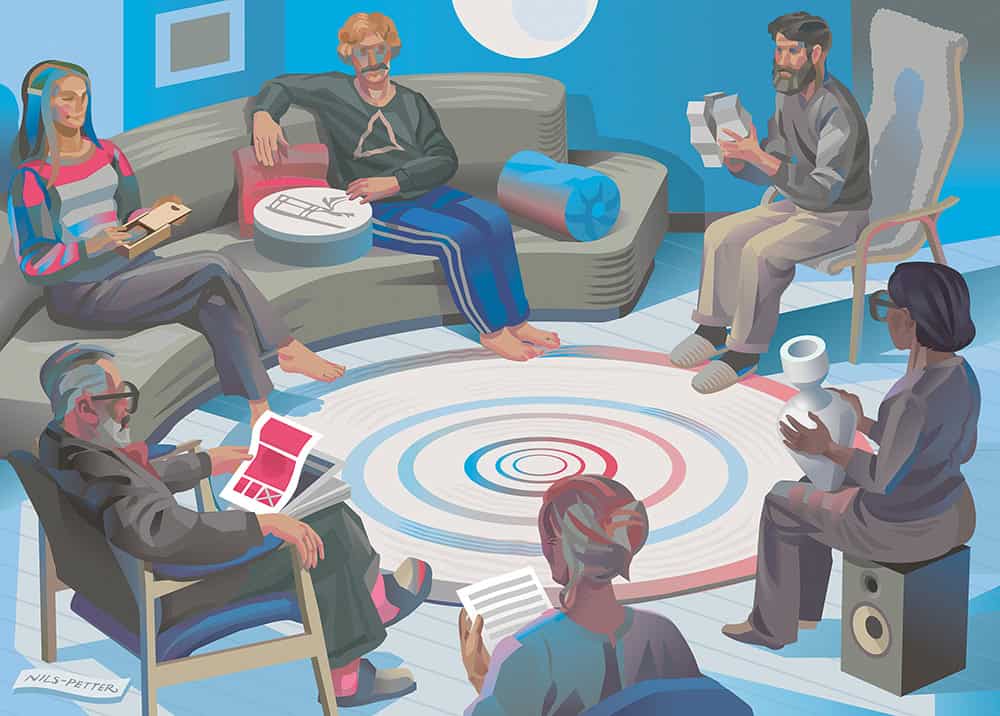Tuesday afternoon. I glance in my inbox and note just over a hundred emails received today. It’s a mix of spam and automatic notifications with more immediately relevant group and personal messages. Big and small, valuable and worthless, all mixed together in a single inbox gloop.
Out of interest, I’ve begun quantifying my handling of email. And despite trying to limit it as much as I possibly can, it still eats up more than 90 minutes a day.
I spend on average around 10–15 minutes on valuable communication (like important research collaborations and teaching tasks), while the rest is stuff I’d rather avoid but am required to handle regardless: messages that I just delete to keep my inbox in reasonable shape as well as those that I must dutifully respond to, despite them in no way constituting a fundamental part of research, teaching, or collaboration.
“A few emails are very important, and well worth the time, but the vast majority of the energy required by the communication channel feels more like trying to appease some sort of petulant and constantly dissatisfied digital royalty.”
Because this is how it usually goes, right? A few emails are very important, and well worth the time, but the vast majority of the energy required by the communication channel feels more like trying to appease some sort of petulant and constantly dissatisfied digital royalty, who demands attention and speedy responses regardless how irrelevant their edicts may be.
And this has serious consequences: the both formal and informal expectations built up around email easily become a heavy burden. Many of us try to frenetically find the time for it during our trips to and from work, during coffee breaks and lunch hours, and during evenings and weekends: unwilling and unpaid email overtime, to keep the more important work from suffering.
Other unfortunate email serfs run constantly after the latest inbox outbursts, and wind up prioritizing the incoming edicts over their research and career development.
Like I said, I’ve begun quantifying, so let’s continue that line of thought. 90 minutes a day, with a senior lecturer wage, with payroll tax and overhead and everything, sums up to around 20,000 SEK per month paid by the employer. That’s about a quarter million per year. So that I, as senior lecturer, can deal with a communication channel that, more often than not, feels like a pointless burden.
Is there no better way? Well, fortunately, there are several forms of sensible passive resistance.
First, I recommend you silence all notifications, and wait. Focus on more important work before lunch, and wait with opening your inbox until after lunch, or even after 3pm. If some matter is more urgent than that it can’t wait until the same afternoon, then whoever sent it will no doubt find another way of contacting you in the meantime.
Then, it can be wise to begin cultivating a reputation of being “bad at email”. This is of course easier if you are (or manage to pretend to be) bad at technology generally. But if you’re sneaky enough, you’ll quickly realize that the “absent-minded professor” stereotype can come in very handy.
You could also ask your boss, in combination with an appraisal meeting or similar, how they see it. “I estimate that it costs the university around a quarter million per year for me to spend 90 minutes a day on email – does this seem reasonable?” Apply a little pressure, and if it turns out that they think that, well, maybe 60 minutes a day sounds better, then suddenly you don’t have to handle your email for longer than that, even if it’s not actually enough to entirely appease Their Royal Email Highness.
And really, that’s the answer: email is supposed to be a support tool, and nothing else. As soon it’s viewed as something we as academics need to live up to, as some sort of central and demanding work task in itself, then things have gone very awry.
“So do your bit to help: be much worse at email! Vive la résistance!”
The more academics who actually research and teach and collaborate, instead of answering all their emails within 48 (or 24, or 2!) hours, the better for all of us. So do your bit to help: be much worse at email! Vive la résistance!


















